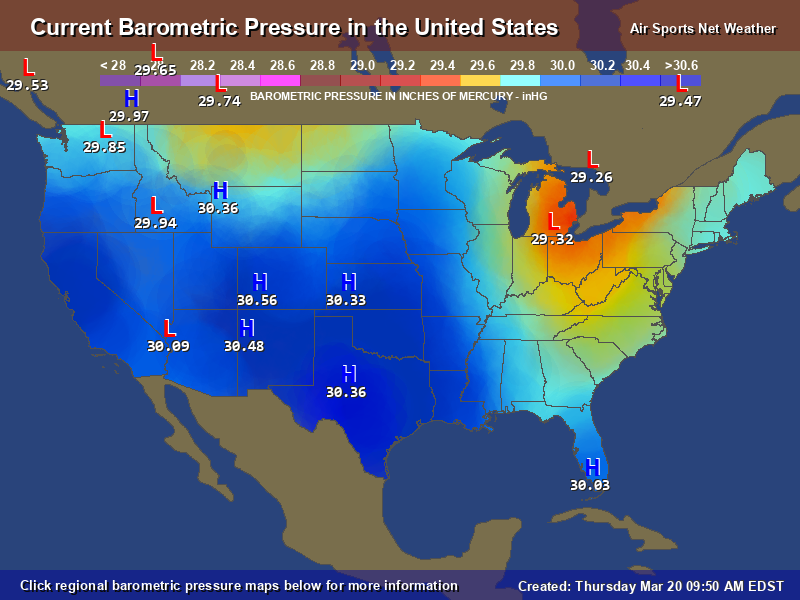General Discussion on any topic relating to CPAP and/or Sleep Apnea.
-
archangle
- Posts: 9293
- Joined: Sun Mar 27, 2011 11:55 am
Post
by archangle » Sat Nov 19, 2016 3:37 am
Sleeprider wrote:Just a thought towards solving the mystery of why a man using CPAP was fatally exposed, while his wife in the same bed was not. CO is heavier than air, and will settle lower in a quiet room. If his CPAP was located on the floor, that alone would explain his higher exposure and fatal dose.
As palerider points out, CO, Carbon MON oxide is slightly lighter than air.
Once mixed, gases don't "settle," anyway. ALL gases are "miscible" and "dissolve" into a uniform mixture and stay mixed once mixed. You can have stratified layers of gas when you introduce a new gas into a room, such as when smoke rises in a room, but it eventually mixes. Good thing, too, or we'd suffocate when we stand up because oxygen is 14% heavier than nitrogen.
-
archangle
- Posts: 9293
- Joined: Sun Mar 27, 2011 11:55 am
Post
by archangle » Sat Nov 19, 2016 4:12 am
Atmospheric pressure is around 1000 cmH20. Max CPAP pressure is around 20 cmH2O. CPAP air would only be 2% denser than room air. You don't get a lot more air or CO just from the denser pressurized air.
From a simple mechanical viewpoint, you don't get much more air from the pressure on CPAP. Your lungs might inflate a little more, but you'd deflate your lungs a little less on exhale. The volume of air per breath cycle would be the same. If it was just the pressure, it would be like inhaling but never exhaling. CPAP helps us apneacs breathe better because it keeps our airway open, not because it breathes for us like a ventilator.
Re: CO detectors
In theory, a CO detector should trigger before you suffer significant danger from CO.
30 ppm for up to 30 days
70 ppm for up to 4 hours
150 ppm for up to 50 minutes
400 ppm for up to 15 minutes
Per UL 2034 standard
-
Guest
Post
by Guest » Sat Nov 19, 2016 5:59 am
archangle wrote:Atmospheric pressure is around 1000 cmH20. Max CPAP pressure is around 20 cmH2O.
If pressure generated by cpap is above room or atmospheric pressure doesn't it logically follow that atmospheric pressure is 0 mH2O not 1000 cmH20?
-
ChicagoGranny
- Posts: 15451
- Joined: Sun Jan 29, 2012 1:43 pm
- Location: USA
Post
by ChicagoGranny » Sat Nov 19, 2016 6:17 am
Guest wrote:doesn't it logically follow that atmospheric pressure is 0 mH2O not 1000 cmH20?
No.

-
Guest
Post
by Guest » Sat Nov 19, 2016 8:06 am
ChicagoGranny wrote:Guest wrote:doesn't it logically follow that atmospheric pressure is 0 mH2O not 1000 cmH20?
No.
Bless yur heart granny. You are in over yur head. Yur pic of a weather map does NOT show pressures in cmH20 sweety. So its not a good comparison to a cpap pressure.
-
ChicagoGranny
- Posts: 15451
- Joined: Sun Jan 29, 2012 1:43 pm
- Location: USA
Post
by ChicagoGranny » Sat Nov 19, 2016 9:35 am
Guest wrote:Yur pic of a weather map does NOT show pressures in cmH20 sweety.
Were you out sick the day they studied weather maps in sixth-grade science class? It's milliBars, Dummy. No weather map shows atmospheric pressure in cm H2O.
Guest wrote:So its not a good comparison to a cpap pressure.
There is no such thing as a
good comparison of atmospheric pressure to CPAP pressure. It's just a way for neophytes to confuse their little brains.
Guest wrote:it logically follow that atmospheric pressure is 0 mH2O
This is a clue to your problem. That zero pressure has caused your brains to splatter out your ears.
-
Guest
Post
by Guest » Sat Nov 19, 2016 10:03 am
ChicagoGranny wrote:Guest wrote:Yur pic of a weather map does NOT show pressures in cmH20 sweety.
Were you out sick the day they studied weather maps in sixth-grade science class? It's milliBars, Dummy. No weather map shows atmospheric pressure in cm H2O.
Guest wrote:So its not a good comparison to a cpap pressure.
There is no such thing as a
good comparison of atmospheric pressure to CPAP pressure. It's just a way for neophytes to confuse their little brains.
So why did YOU choose the weather map then?
Guest wrote:it logically follow that atmospheric pressure is 0 mH2O
ChicagoGranny wrote:This is a clue to your problem. That zero pressure has caused your brains to splatter out your ears.
Using your comparison a pressure of 20 cmH20 would be a vacuum at your weather map pressures. You silly Granny
-
ChicagoGranny
- Posts: 15451
- Joined: Sun Jan 29, 2012 1:43 pm
- Location: USA
Post
by ChicagoGranny » Sat Nov 19, 2016 10:08 am
Guest wrote:doesn't it logically follow that atmospheric pressure is 0 mH2O
Guest wrote:So why did YOU choose the weather map then?
To show a dummy that atmospheric pressure is not zero.
-
Guest
Post
by Guest » Sat Nov 19, 2016 10:15 am
ChicagoGranny wrote:Guest wrote:doesn't it logically follow that atmospheric pressure is 0 mH2O
Guest wrote:So why did YOU choose the weather map then?
To show a dummy that atmospheric pressure is not zero.
Indeed it is when measured at cmH20. So now you can say YOU learned somethin TODAY.
Is your Google broke too? Silly Granny
btw - hurling insulting remarks does not make you right.
-
Midnight Strangler
- Posts: 248
- Joined: Tue Oct 07, 2014 5:39 am
Post
by Midnight Strangler » Sat Nov 19, 2016 11:07 am
Perchancetodream wrote:
When you think about it it makes sense that if we are breathing air under pressure, a lot more air (and whatever is in it) will pass through our lungs than through the lungs of a non-user.
This is not true. A CPAP user will not take in any more air than is needed to properly oxygenate his bloodstream. His body's autonomous system regulates this while he is asleep.
Guest wrote:Indeed it is (zero) when measured at cmH20.
I have no idea what this discussion is about and don't care to know, but this statement makes no sense. Maybe replacing the preposition "at" with an explanatory phrase would help?
Atmospheric pressure of the earth at sea level is 14.70 pounds per square inch or 1034 cm H2O. Even on the summit of Mt. Everest the atmospheric pressure is 343 cm H2O.
So no, atmospheric pressure is not zero on earth.
-
Goofproof
- Posts: 16087
- Joined: Mon Dec 05, 2005 3:16 pm
- Location: Central Indiana, USA
Post
by Goofproof » Sat Nov 19, 2016 12:35 pm
archangle wrote:Sleeprider wrote:Just a thought towards solving the mystery of why a man using CPAP was fatally exposed, while his wife in the same bed was not. CO is heavier than air, and will settle lower in a quiet room. If his CPAP was located on the floor, that alone would explain his higher exposure and fatal dose.
As palerider points out, CO, Carbon MON oxide is slightly lighter than air.
Once mixed, gases don't "settle," anyway. ALL gases are "miscible" and "dissolve" into a uniform mixture and stay mixed once mixed. You can have stratified layers of gas when you introduce a new gas into a room, such as when smoke rises in a room, but it eventually mixes. Good thing, too, or we'd suffocate when we stand up because oxygen is 14% heavier than nitrogen.
Smoke rises in a room because it's a product of fire and is heated air, as it cools it falls and the solid combustion products fall out of the mix and deposit everywhere, as a smokers home everything is covered in nicotine, the gasses mix with the air. Jim
Good thing, too, or we'd suffocate when we stand up because oxygen is 14% heavier than nitrogen. I could sleep on the floor, wouldn't need that O2 Pump.......... We could wear a XPAP mask all day, and run a hose near the floor to it.
Use data to optimize your xPAP treatment!
"The art of medicine consists in amusing the patient while nature cures the disease." Voltaire
-
chunkyfrog
- Posts: 34544
- Joined: Mon Jul 12, 2010 5:10 pm
- Location: Nowhere special--this year in particular.
Post
by chunkyfrog » Sat Nov 19, 2016 12:50 pm
My machine is said to automatically adjust to work at higher or lower altitudes,
thus maintaining a consistent pressure differential between the airway and ambient (room) air.
Does this mean it has an altimeter inside?
Another thought: if air pressure were zero at sea level, wouldn't our blood boil and our eyes explode there?
-
Goofproof
- Posts: 16087
- Joined: Mon Dec 05, 2005 3:16 pm
- Location: Central Indiana, USA
Post
by Goofproof » Sat Nov 19, 2016 1:17 pm
chunkyfrog wrote:My machine is said to automatically adjust to work at higher or lower altitudes,
thus maintaining a consistent pressure differential between the airway and ambient (room) air.
Does this mean it has an altimeter inside?
Sorry, Just Sales Hipe, What you get is the ability to deliver air at the pressure your XPAP is set to provide. I doubt if it has a altimeter built in, probable just a sensor that measures a baseline pressure (normal air pressure) and a sensor that mesures and controls the output pressure
Another thought: if air pressure were zero at sea level, wouldn't our blood boil and our eyes explode there?
Just when we thought life was hard, no air! Jim
Use data to optimize your xPAP treatment!
"The art of medicine consists in amusing the patient while nature cures the disease." Voltaire
-
palerider
- Posts: 32299
- Joined: Wed Dec 16, 2009 5:43 pm
- Location: Dallas(ish).
Post
by palerider » Sat Nov 19, 2016 1:41 pm
archangle wrote:Atmospheric pressure is around 1000 cmH20. Max CPAP pressure is around 20 cmH2O.
your casual throwing around of approximation of facts creates chaos.
one atmosphere of pressure = 1033.23 cm/h2o
absolute which means *nothing*.
max cpap pressure from commercially available home machines is 30cm/h2o
*ABOVE AMBIENT PRESSURE" which *stares pointedly at "guest"* that the maximum pressure in a resmed bilevel cpap would be 1066.23
compared to a total vacuum (0 pressure).
none of that matters, because cpap pressure is related to the ambient pressure around the machine. 5, 10, 20, 30 cm/h2o
*ABOVE AMBIENT*Get OSCAR
Accounts to put on the foe list: dataq1, clownbell, gearchange, lynninnj, mper!?, DreamDiver, Geer1, almostadoctor, sleepgeek, ajack, stom, mogy, D.H., They often post misleading, timewasting stuff.
-
palerider
- Posts: 32299
- Joined: Wed Dec 16, 2009 5:43 pm
- Location: Dallas(ish).
Post
by palerider » Sat Nov 19, 2016 1:44 pm
Guest wrote:archangle wrote:Atmospheric pressure is around 1000 cmH20. Max CPAP pressure is around 20 cmH2O.
If pressure generated by cpap is above room or atmospheric pressure doesn't it logically follow that atmospheric pressure is 0 mH2O not 1000 cmH20?
no. atmospheric pressure
at sea level is approximately 10.3323 m/h2o (you said meters, not centimeters)
air has weight.
Get OSCAR
Accounts to put on the foe list: dataq1, clownbell, gearchange, lynninnj, mper!?, DreamDiver, Geer1, almostadoctor, sleepgeek, ajack, stom, mogy, D.H., They often post misleading, timewasting stuff.












